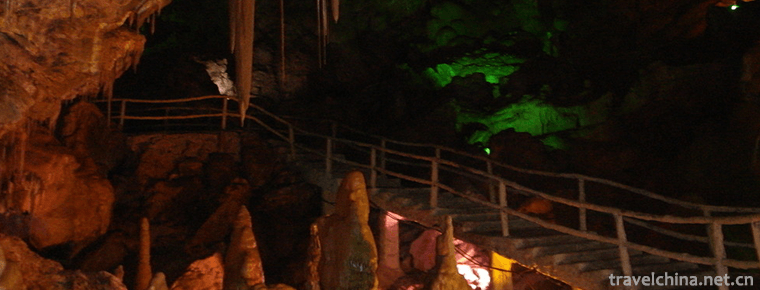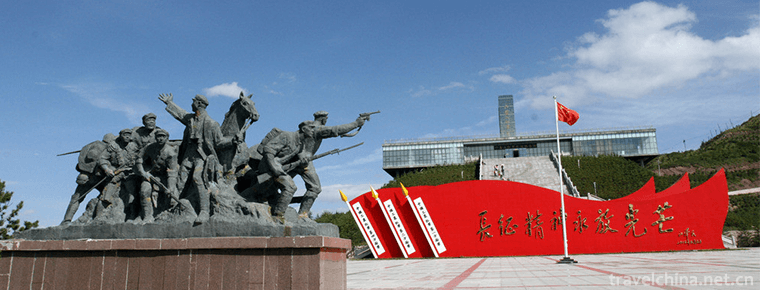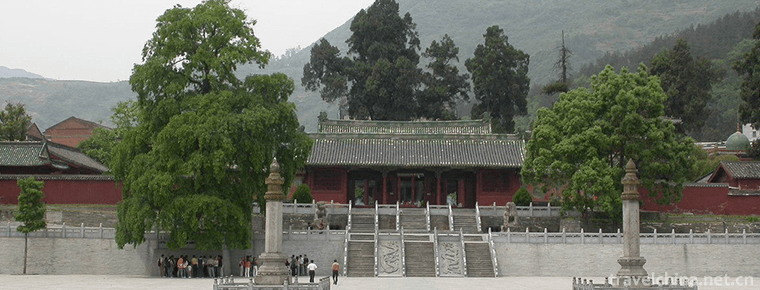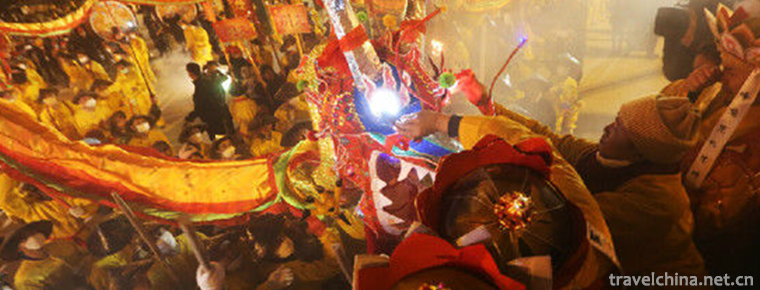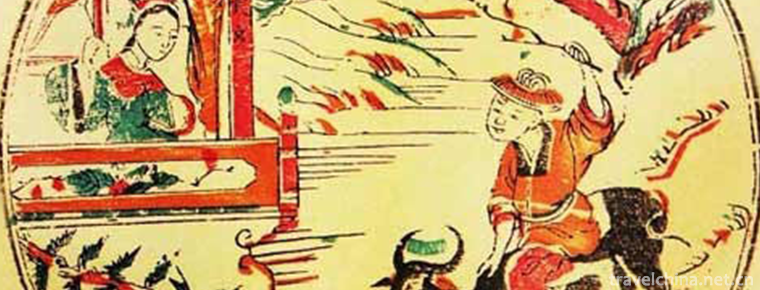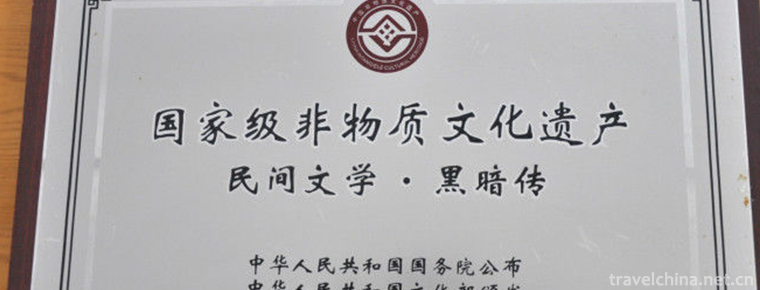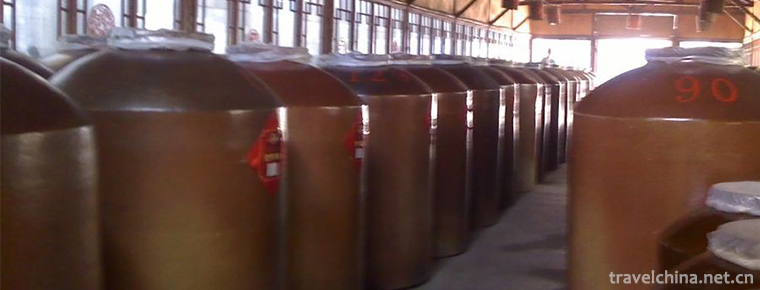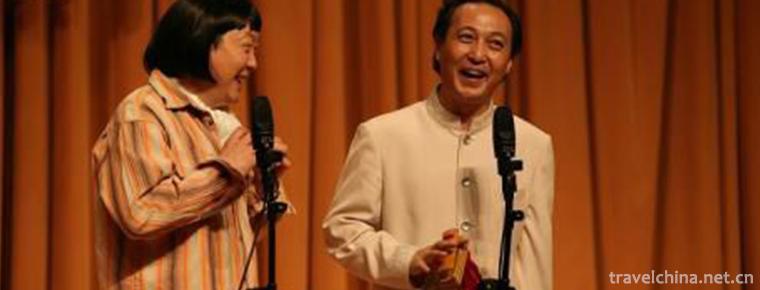Heng Dian World Studios
Hengdian Film and Television City is a large-scale comprehensive tourist area which integrates film and television, tourism, vacation, leisure and sightseeing. It has been rated as the national AAAAA-level tourist attraction for its rich cultural background and unique historical scenes. In 1996, it was set up to cooperate with the famous director Xie Jin to shoot the historical blockbuster Opium War, and was officially open to the society.
Hengdian Film and Television City is located in Hengdian Town, Dongyang City, Jinhua City, Zhejiang Province. It is located in the four-hour traffic and tourism economic circle of Jiangsu, Zhejiang, Shanghai, Fujian and Jiangxi. Since 1996, Hengdian Group has invested 3 billion yuan in the construction of 13 multi-thousand-year-old residential exhibition cities, such as Guangzhou Street, Hong Kong Street, Ming and Qing Palace, Qinwang Palace, Qingming Shanghe Tu, Huaxia Cultural Park, Ming and Qing Dynasty Residence Expo City, Dream Valley, Pingyan Cave, Dazhi Zen Temple, Red Army Long March Expo City, Spring and Autumn Tangyuan and Yuanming New Garden. Space-time, film and television shooting base and two super-large modern studios with regional characteristics of North and South.
Hengdian Film and Television City has become the world's largest film and television shooting base, China's only "national-level film and television industry experimental zone", by the United States, "Hollywood" magazine called "China Hollywood".
On October 12, 2017, Hengdian Film and Television officially landed on the Shanghai Stock Exchange, offering 53 million shares at a price of 15.45 yuan per share, accounting for 11.70% of the company's total equity after the issuance.
Hengdian Film and Television City is located in Hengdian Town, Dongyang City, Jinhua City, Zhejiang Province. It is 18 kilometers away from the center of Dongyang City, 180 kilometers away from Hangzhou and Wenzhou, and within the four-hour traffic and tourism economic circle of Jiangsu, Zhejiang, Shanghai, Fujian and Jiangxi. It can be accessed directly by air, train or by expressway. The total area is more than 30 square kilometers, and its core scenic area is more than 20 square kilometers.
Hengdian, once unknown town, with the continuous upgrading and development of film and television culture and tourism products in Hengdian Film and Television City, the strategic transformation from a single "film and television base" to a film and television theme tourism park.
In 1996, Guangzhou Street Scenic Area, the first film and television shooting base, was built to shoot the gifted blockbuster Opium War.
In 1997, the King of Qin Palace scenic spot was constructed for the production of the historical blockbuster Jing Ke stabbing the King of Qin.
In 1998, Hong Kong Street, Qingming Shanghe Tu and Ming and Qing Palace Garden scenic spots were built.
In 1999, Jiangnan Water Township Scenic Area was built and the first "Chinese Farmers Tourism Festival" was held.
In 2000, in order to attract more domestic and foreign theatre groups to shoot in Hengdian Film and Television City, all scenes of Hengdian Film and Television City are free of rent. The National Tourism Administration created a delegation of excellent tourist cities to Hengdian. The Director of the National Tourism Administration inscribed Hengdian: "Chinese Farmer Tourist City" and built two super-large-scale modernizations one after another. Studio.
In 2001, Hengdian Group Zhejiang Film and Television Travel Industry Co., Ltd. integrated more than 20 enterprises related to all film and television shooting bases, star hotels, film and television shooting and tourism reception services under Hengdian Group.
In 2001, Hengdian's film and television tourism achieved initial success. The number of tourists doubled compared with the previous year. Zhang Yimou's film Heroes was filmed in the Qin Palace scenic spot. Establishing a film and television management center to unify the management and operation of supporting services such as scenery, props, clothing, cosmetics, vehicles, equipment leasing, actors and so on, has become one of the most standardized managers and service providers in domestic film and television shooting bases. Integrating the marketing team of each scenic spot and setting up a unified tourism marketing company, this is the first step in the industry, and the innovation of the marketing system has prepared the conditions for a substantial increase in the number of tourists.
In 2002, 12 film and television shooting bases were built, and three natural scenic spots such as Shenlixia in Pujiang River were developed.
In 2003, Hengdian Group Zhejiang Film and Television Travel Industry Co., Ltd. was formally renamed Zhejiang Hengdian Film and Television City Co., Ltd. The Actors Association was established to provide a large number of performance opportunities for amateur actors. There were thousands of registered actors, and nearly 70,000 people appeared as mass actors and special actors in that year.
In 2004, Hengdian was approved by the State Administration of Radio, Film and Television as China's only national film and television industry development base - Zhejiang Hengdian Film and Television Industry Experimental Zone was officially listed. The 8th China International Children's Film Festival and China Hengdian Film and Television Expo 2004 were also held.
In 2004, Chen Kaige's film "Wuji" started shooting in the scenic spot of the Qin Palace.
In 2005, from 1996 to 2005, more than 300 theatre groups were received, and nearly 10,000 films and TV series were produced. In 2005, more than 3 million tourists were received.
In 2010, Hengdian Film and Television City entered Tongzhi Shopping Center, Shanxi Province, the largest shopping brand channel in North China.
On June 28, 2011, the first "Top 100 Tourist Scenic Spots in China" was released. Hengdian Film and Television City ranked fourth in the "Top 100 Tourist Scenic Spots in China" list with 8.41 million tourists in 2010.
At the end of June 2012, a large-scale holographic multimedia reality show "Dragon Play Phoenix" with an investment of more than 350 million yuan appeared in the Qingming Shanghe Scenic Spot of Hengdian.
On July 21, 2012, the carefully planned sixth edition of "Dream Taiji" was launched.
On August 28, 2012, Zhejiang Post Office, Zhejiang Filmmakers Association and Hengdian Film and Television City jointly launched a personalized commemorative stamp for the 100th anniversary of the birth of Chinese films. Hengdian Film and Television City personalized commemorative stamps, small stamps and Hengdian Film and Television City postcards, first day souvenir envelopes, etc. Hengdian Film and Television City personalized commemorative stamps 8 small stamps per edition, Hengdian Film and Television City stamp postcards 12 per set. The small stamps and postage postcards have selected the representative scenic spots of Hengdian Film and Television City as their contents.
In December 2012, the tourist reception of Hengdian Film and Television City exceeded 11.77 million, a new historical record.
In April of 2013, more than 100 million yuan was invested. The 4D ride experience project "Dragon Emperor's surprise" and the performance of the large-scale song and dance show "Forbidden Code" were officially launched. In the same month, Ferris Wheel, a new amusement facility in the Dream Valley scenic area, shocked the public.
In 2015, there were 638 enterprises and 242 studios in Hengdian Film and TV Cultural Industry Experimental Zone.
2016 is the 20th anniversary of the founding of Hengdian Film and Television City. In the past 20 years, Hengdian has become the representative symbol of China's film and Television Cultural industry. It has received more than 1700 film and television groups and more than 100 million tourists. As of 2017, 2155 Chinese and foreign films and TV works have been filmed in Hengdian.
The first town in Jiangnan
Hengdian, known as "the first town in the south of the Yangtze River", is the largest film and television shooting base in Asia. In 1999, Hengdian was praised as "Hollywood in China" by Hollywood Reporting, the most authoritative professional magazine in American film and television circles.
Hengdian Film and Television City has created and broken many Chinese records of the China World Records Association, and has been selected as the largest film and television city of the World Records Association in China, creating many of the world's largest.
Hengdian Film and Television City received 1.28 million tourists in 2002, and more than 12 million tourists visited Hengdian in 2011, with an income of 6 billion yuan.
Hengdian's added value of cultural industry accounts for 28% of GDP, which is more than 10 times the national average of 2.78%.
Hengdian Film and Television City, the world's largest film shooting base, has more than 5,000 works at home and abroad.
The largest scale of construction
Hengdian Film and Television City has 12 film and television shooting bases, with a total land area of 4963 Mu and a building area of 495995 square meters. Hengdian Film and Television City is the largest film and Television City in China and even in Asia.
The biggest tourist attractions are the Qin Palace, Shanghe Tu of Qingming Dynasty and Palace Court of Ming and Qing Dynasty, which are under the jurisdiction of Hengdian Film and Television City. The construction scale of these three bases ranks first in the same kind of shooting bases (scenic spots) in China.
The tallest Buddha in the room
The main hall of the restored Dazhi Zen Temple is 45.05 meters tall, and the temple's Sakyamuni Buddha is 28.88 meters tall. The indoor Buddha statue is the second highest in China.
Film and television shooting the most
Hengdian Film and Television City has received more than 200 drama groups since 1996 when the film "Opium War" was filmed, and has produced more than 4000 films and teleplays by the end of 2003.
Most performers
According to statistics, there were more than 1200 supporting actors of the "Crossdrift" group with certain performing skills in Changju Hengdian in 2003, and more than 1100 registered mass actors who participated in the shooting.
Largest indoor studio
There are two high-tech studios in Hengdian Film and Television City, one of which is 1944 square meters and 23 meters high. It is the largest indoor studio in China.
In April 2007, it was named "the advanced collective of the National Tourism system", which is the only private enterprise in China to win this honor.
China's only "national-level film and television industry experimental zone".
Awards and honors
In 2000, Hengdian Film and Television City was awarded the first batch of national AAAA-level tourist attractions by the National Tourism Administration.
In 2003, it was selected as "ten best and most attractive tourist attractions in Zhejiang Province".
In 2006, Hengdian Film and Television City was awarded as "China's Top Ten Film and Television Shooting Bases".
In April 2007, the Ministry of Personnel and the National Tourism Administration awarded Zhejiang Hengdian Film and Television City Co., Ltd. the honorable title of "National Advanced Collective Tourism System", which is the only private enterprise in Zhejiang Province to win this honor.
In June 2007, Hengdian Film and Television City was selected as "the most distinctive film and television shooting base in China" by the 10th Shanghai International Film Festival.
In February 2009, Hengdian Film and Television City was designated as Zhejiang Province Cultural Industry Demonstration Base by the Provincial Department of Culture.
In March 2010, Zhejiang Brand Strategy Promotion Committee officially recognized Hengdian Film and Television City as Zhejiang Brand.
On April 18, 2010, the National Tourism Administration officially awarded Hengdian Film and Television City the title of national 5A tourism scenic spot; in June 2010, Hengdian Film and Television City was designated as the pilot enterprise of National Tourism Standardization by the National Tourism Administration.
On September 07, 2011, "China's Top Ten Most Influential Tourism Performances in the World" sponsored by the Chinese and Foreign Tourist Cultural Association was selected. Hengdian Film and Television City Art Troupe performed the world's largest volcanic live performance "Dream Taiji" among them.
In March 2013, Hengdian Film and Television City was awarded the 9th Zhejiang Consumer Trusted Unit.
From the beginning of 1996 to 2013, in 17 years, Hengdian Film and Television City has a name - "China Hollywood". A small village, which started with industry and became rich, is well-known throughout the country for its sideline. This miracle has been witnessed all the way. Behind the miracle, insiders believe that the "Hengdian model" has given it an extraordinary scale.
Hengdian Film and Television City now has 18 film and television shooting bases, such as Guangzhou Street, Hong Kong Street, Qinwang Palace, Qingming Shanghe Tu, Ming and Qing Palace Court and Dream Valley. In these bases, more than 1200 films and TV plays have been filmed, such as The Opium War, Heroes (Movie Edition, American Drama Edition), Wuji, Yongzheng Dynasty, Picture Skin (Movie Edition, TV Edition), and The Journey to the West. Hengdian is also called "China Hollywood" by people in the industry.
The data show that in the 17 years from the beginning of 1996 to 2013, Hengdian Group opened up 32 742.48 mu of barren hills. Among them, the reclamation area of the Red Army Long March Expo City built in 2005 to commemorate the Seventieth Anniversary of the victory of the Chinese Workers'and Peasants' Red Army reached 9,000 mu. The Shanghai Beach Base, which invests 1.5 billion yuan in new projects, is also under construction.














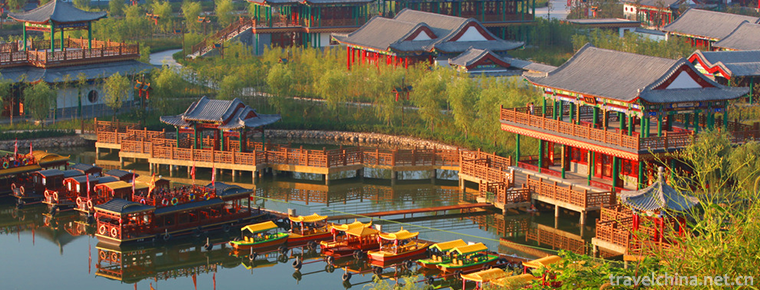
-
Wanxiang Karst Cave
Vientiane Cave, the national AAAA-level tourist attractions, provincial geological parks, provincial scenic spots and provincial cultural relics protection units.
Views: 124 Time 2018-12-17 -
Liupanshan National Forest Park
Liupanshan National Forest Park is located in the center of the triangle formed by Xi'an, Yinchuan and Lanzhou. It is located in the south of Ningxia. It spans two counties and one district in Jingyua.
Views: 121 Time 2018-12-24 -
Jiangbulak Scenic Area
Jiangbulak Scenic Area is located in the low mountain belt 58 kilometers southeast of Qitai County, Xinjiang, China. It includes wide gully scenic area and Yangwatan beach.
Views: 143 Time 2019-01-21 -
Bao en Temple Pingwu
Pingwu Baoen Temple is located in Pingwu County, Sichuan Province. It is 184 kilometers away from Mianyang City and 300 kilometers away from Chengdu. Located in the northeast corner of the county town.
Views: 143 Time 2019-02-07 -
Binyang Gulong Festival
Binyang Gulong Festival is a unique traditional festival in Binyang County, Guangxi. It is a comprehensive folk festival that integrates Han and Zhuang cultures..
Views: 219 Time 2019-04-04 -
Foshan Wood Engraving New Year Pictures
Foshan woodcut New Year's picture is a famous folk New Year's picture in South China and a wonderful flower of Lingnan traditional folk culture. It is as famous as the New Year.
Views: 174 Time 2019-04-29 -
Dark pass
Dark pass Dark Biography, as the first Creation Epic of the Han nationality, is represented by folk songs and songs. It began to circulate in the Ming and Qing Dynasties. .
Views: 316 Time 2019-05-03 -
Brewing Techniques of Qingxu Old Vinegar
The brewing process of Qingxu aged vinegar is complex. After the main steps of ingredients, steaming, manual turning of solid acetic acid, high temperature fumigation, high density leaching, aging and.
Views: 247 Time 2019-06-11 -
Shulaibao
Shulaibao, a traditional Chinese folk art. Popular in northern China, the source is a means for beggars to ask for money. One or two people sing. Beat with a bamboo board or with a copper bell attache.
Views: 228 Time 2019-06-15 -
Aba Teachers University
Aba Teachers College, formerly Aba Teachers College, is a full-time general college approved by the State Council in December 1978. In 1993, it was renamed Aba Teachers College. The school was origina.
Views: 227 Time 2019-08-31 -
China Foreign Affairs University
China Foreign Affairs University is a small scale, high level and distinctive foreign ministry's sole institution directly under the guidance of serving the cause of China's diplomacy and cultivating .
Views: 169 Time 2019-11-29
